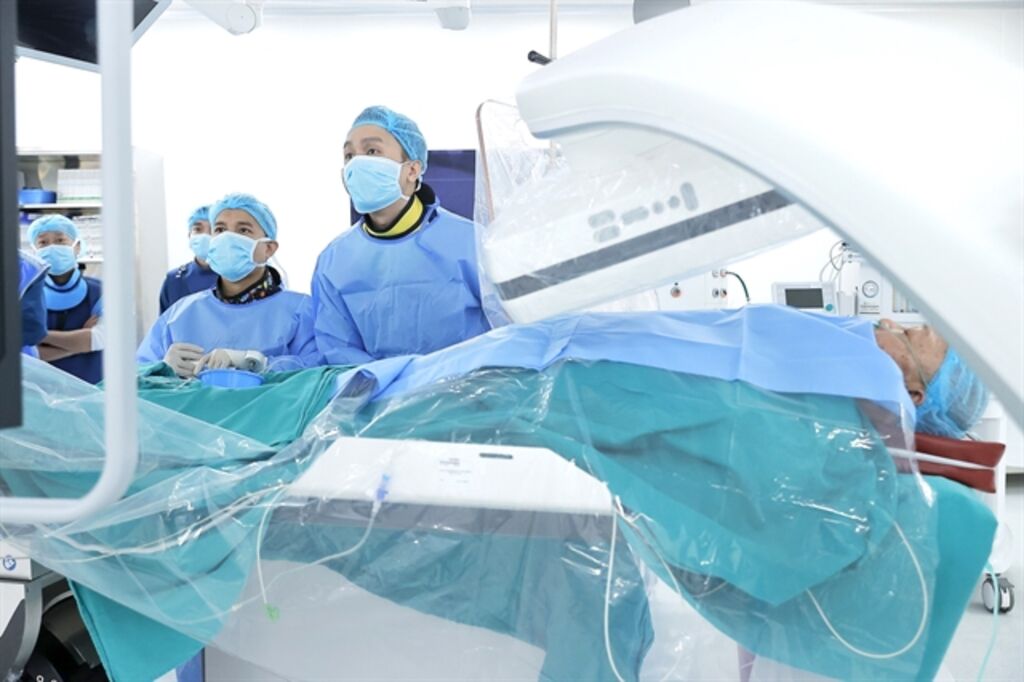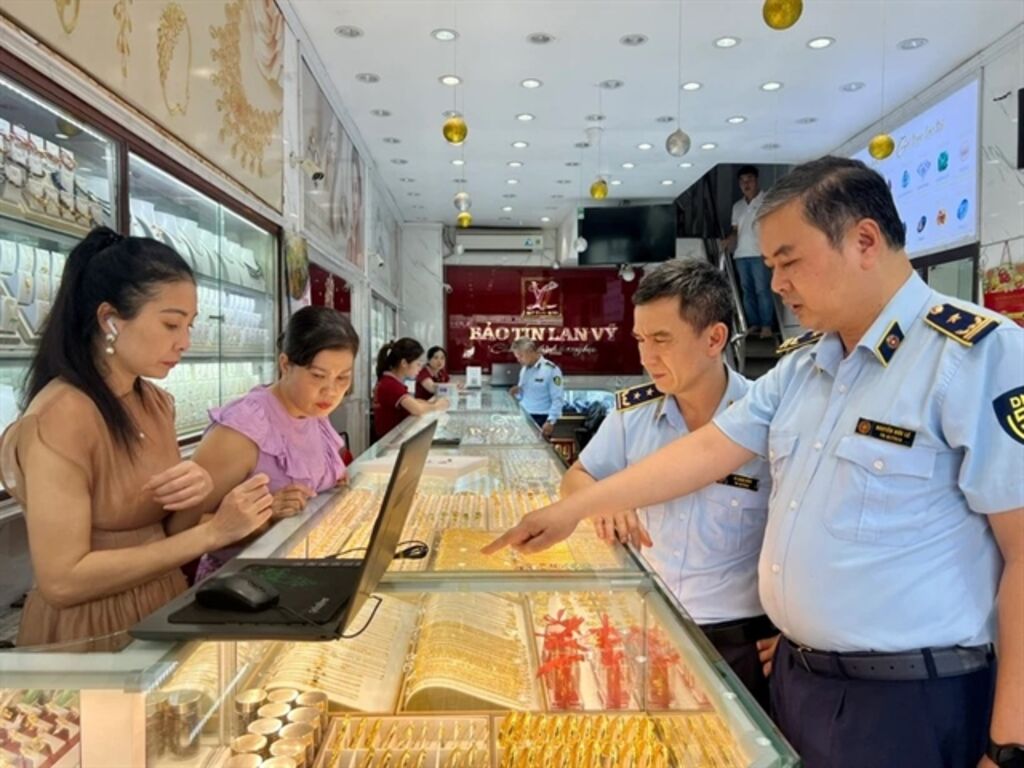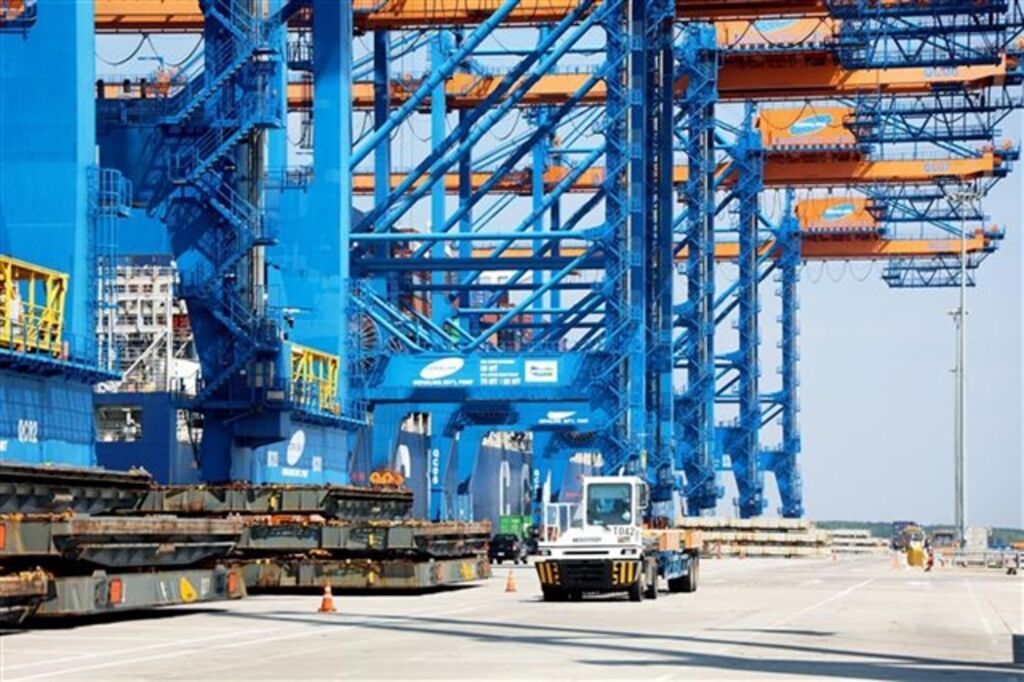Spanning areas from taxation and science to banking and trade, the October regulations set out detailed provisions that enterprises and state authorities will need to implement.
Adjusting corporate income tax rates based on business scale and sector
 |
| Vietsovpetro's oil rigs in Bach Ho field__Photo: VNA |
Under the Corporate Income Tax Law No. 67/2025/QH15, effective from October 1, 2025, the standard corporate income tax (CIT) rate is set at 20 percent, with preferential or sector-specific rates applying in certain cases. Enterprises with annual revenue not exceeding VND 3 billion will benefit from a reduced rate of 15 percent, while those with revenue exceeding VND 3 billion and up to VND 50 billion will pay a tax rate of 17 percent. Revenue thresholds are determined based on the previous tax year.
For oil and gas exploration and extraction, CIT rates range from 25 to 50 percent depending on specific field conditions, as decided by the Prime Minister. Extraction of rare resources such as platinum, gold, silver, tin, tungsten, gemstones, and rare earths is subject to a 50 percent tax rate, which may be reduced to 40 percent if more than 70 percent of the mine’s area lies in regions classified as extremely difficult socio-economic zones.
The revised framework is intended to promote fairness in taxation while encouraging sustainable business operations.
Supporting enterprises investing in artificial intelligence
 |
| The surgical team performs a coronary stent placement using the Artis Pheno robotic arm__Photo: VNA |
This policy is introduced in the Law on Science, Technology and Innovation No. 93/2025/QH15, effective October 1, 2025.
The law encourages the application of artificial intelligence (AI) in research and development, while requiring that AI-related activities directly involving humans—such as in healthcare and biotechnology—be strictly regulated and subject to human oversight.
Importantly, the State will support enterprises in investing in AI-related equipment. Research and innovation expenditures will be recognized as deductible expenses when determining taxable income, thereby incentivizing businesses to expand investment in science and technology.
Removing the state monopoly in the gold market
 |
| Market inspectors during a routine check at a gold shop in Hanoi__Photo: VNA |
The Government has issued Decree No. 232/2025/ND-CP to amend Decree 24/2012/ND-CP on gold trading management. The decree, effective October 10, 2025, officially abolishes the State monopoly on the production of gold bars and on the import and export of gold materials for gold-bar production.
The decree expands its regulatory scope, introduces a new definition of gold bars, and stipulates that only licensed commercial banks and eligible enterprises may engage in production.
Gold bar production is classified as a conditional business sector requiring a license from the State Bank of Vietnam (SBV). Transactions worth VND 20 million or more per day must be settled via bank transfer. The decree also requires disclosure of product standards, warranty policies, and data connectivity with the SBV.
Applying supplementary corporate income tax
The Government has promulgated Decree No. 236/2025/ND-CP, detailing the implementation of Resolution No. 107/2023/QH15 on the application of supplementary corporate income tax under global anti-base erosion rules. The decree takes effect on October 15, 2025.
Accordingly, taxpayers are constituent entities of multinational enterprise groups whose consolidated revenues of the ultimate parent company total at least EUR 750 million in at least two of the four years immediately preceding the fiscal year of tax determination, unless exempted under specific provisions.
For newly established groups, entities will also be subject to the tax if revenues meet the EUR 750 million threshold in at least two years within their first four years of operation.
Reducing reserve requirements for certain credit institutions
Effective October 1, the State Bank of Vietnam’s Circular 23/2025/TT-NHNN, amending Circular No. 30/2019 on compulsory reserve rates, grants a 50 percent reduction in reserve requirements for credit institutions supporting or assuming mandatory transfers of commercial banks under special control, in line with approved recovery or transfer plans.
The circular introduces provisions for policy banks and renames “provincial and municipal branches of the State Bank” as “regional branches of the SBV.” It also clarifies the supervisory responsibilities of the State Bank’s Banking Supervision and Inspection Agency regarding violations of reserve requirements.
Exempting fees and charges for goods and vehicles in transit
 |
| At the Gemalink international port__Photo: VNA |
Scheduled to take effect on October 12, 2025, the Ministry of Finance’s Circular 86/2025/TT-BTC sets out fee and charge regimes for customs services and for transit goods and vehicles.
Article 3 specifies exemptions for humanitarian aid and non-refundable assistance; gifts within duty-free limits; diplomatic goods; personal luggage; cross-border trade by border residents; vehicles managed under border-resident tracking books; and goods or vehicles exempted under treaties or Government commitments.- (VLLF)









